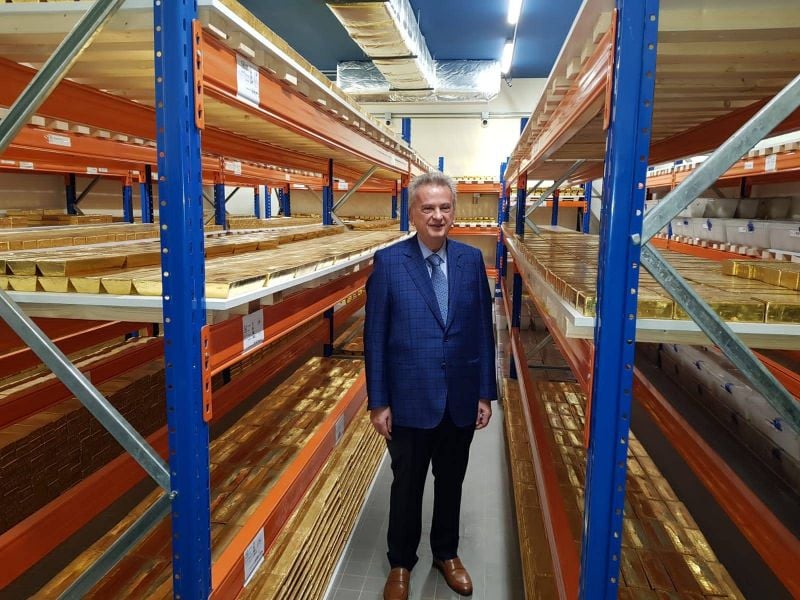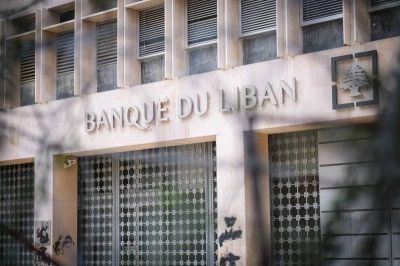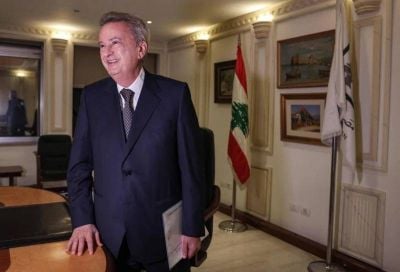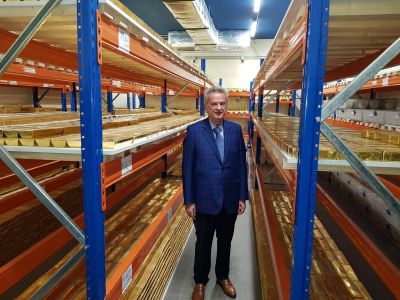
Banque du Liban governor Riad Salameh in what appears to be a vault of gold bullion. (Courtesy of: BDL)
Banque du Liban completed an audit of its gold reserves, including “coins and bullion,” by a “specialized” international company, the bank said in a statement Thursday.
The audit was part of a slew of International Monetary Fund demands for reform to Lebanon’s economy in exchange for a multi-billion-dollar assistance package agreed upon in April.
Attached to the statement was a photo of BDL Governor Riad Salameh standing in an aisle of what appeared to be a vault filled with gold bullion.
According to BDL, the operation was carried out with the cooperation and agreement of the IMF, which had requested “transparency” on the actual state of the central bank’s assets.
BDL concluded its brief statement by assuring that the auditing firm — which it did not name — had been able to confirm that the quantities of gold declared corresponded exactly with those contained in its vaults. It did not, however, disclose the quantities reported by the auditor.
Byblos Bank’s latest Lebanon This Week report, issued Tuesday, counted these gold reserves at a total $16.4 billion as of mid-November.
Lebanon has the second-largest stockpile of gold among Arab countries, at 286 tons. This is equal to 9.22 million troy ounces, a measure used for precious metals and gems wherein one ounce equals 31.1 grams. About 40 percent of this stockpile is stored in the United States.
In addition to these assets, BDL publishes foreign exchange reserves at the same time as its gold reserves, which amounted to $10.25 billion in mid-November, not to mention just over $5 billion in Eurobonds — foreign currency debt securities issued by the Lebanese government, which the latter stopped repaying in March 2020.
However, BDL does not disclose details on the proportion between required reserves (the funds deposited by the country’s banks with the BDL at its request) and available reserves.
Should the country meet a set of demands for financial reform, the IMF financial assistance package sought by Lebanon would amount to $3 billion, disbursed over a period of four years.
The 2022 budget (which came into effect more than 10 months late), the adoption of a law establishing capital controls (still in the hands of MPs and already criticized) and another law modifying bank secrecy (passed in October but emptied of its substance) are among the IMF’s other prerequisites.


